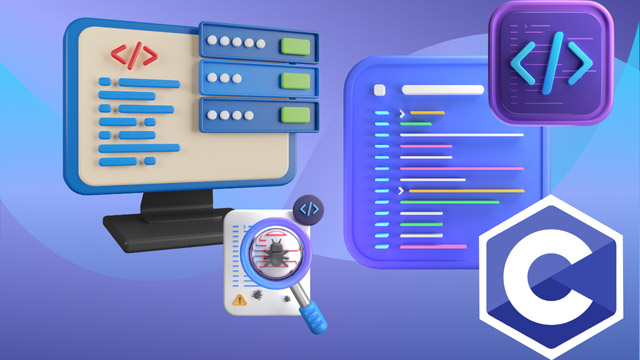
Description
Do you enjoy coding? Do you want to build your career in Programming?
Start learning C Programming with us!
This programming language is a widely used and developed to write an operating system. Also, to do application level programming. This is the building block of Computer Technology.
This course covers the fundamentals of Computer theories including the flow of a program using branch statements, repetition, nesting of structures, creating and modifying arrays, how arrays are organized in memory.
After completing this course, you can work as a Programmer, Embedded Programmer, System Engineer, System S/W Engineer, Network Security Engineer and Game Programmer.
Admission Process
1) The learner should go to the MS-CIT Authorized Learning Center (ALC).
2) The learner should fill an application form available at the MS-CIT Authorized Learning Center (ALC), along with the prescribed fees. The fees can be paid in two modes.
3) Relevant documents to be carried at the time of admission are :- Xerox copy of Photo Id proof signed by the learner- 1 copy of passport size photograph (color or Black & White).
4) Once the learner submits his/her details, relevant documents and pays the fees, the MS-CIT ALC coordinator will fill the learner details in the MKCL software and upload the learner data. Further, the ALC coordinator will hand over a fee receipt.
5) Learner is expected to verify the online details filled in by ALC.
6) ALC coordinator will hand over the MS-CIT book (study material) whose cost is already included in the fee. The book is provided as per the medium selected by the learner (English, Marathi, Hindi).
7) After the learner receives the study material, the learner is eligible to start learning instantly through ERA, using his User ID and password.
8) If you want to know about learning method and course details, you can check course demo at MS-CIT centers. We offer Welcome course, demo of MS-CIT at free of cost to learners who want to enroll for MS-CIT. This course is available at nearest MS-CIT center. Please visit today.
Syllabus
1) Getting Started
2) Decisions Control Structure
3) Loop Structure
4) Case Control Structure
5) Functions
6) Pointers
7) Data Types
8) Arrays
9) Structures
10) Strings
11) Miscelleneous







